Inside Chernobyl: A Legacy of Ruin
Truthdig Editor in Chief Robert Scheer was the first American journalist to enter the surviving power plant in the former Soviet Union On the 30th anniversary of the nuclear disaster, he recounts his experience in a Los Angeles Times column first published on April 9, 1987 Truthdig Editor in Chief Robert Scheer was the first American journalist to enter the surviving power plant in the former Soviet Union.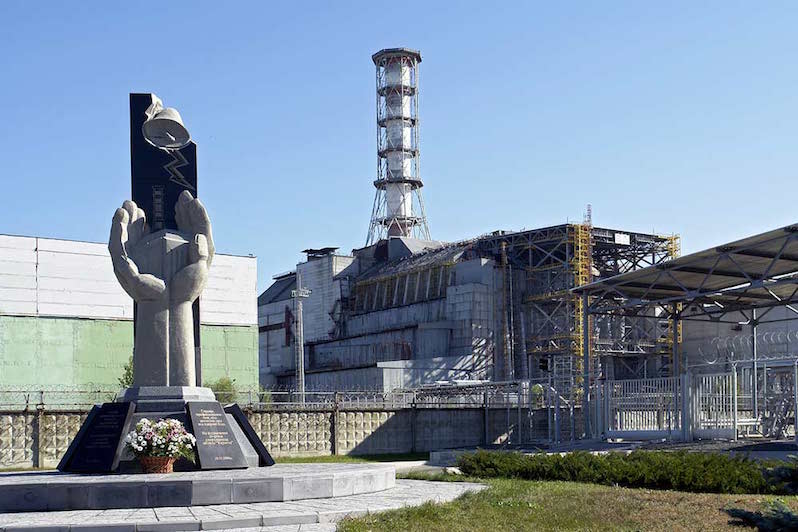 All nuclear reactors at Chernobyl were shut down by 2000. A New Safe Confinement structure is expected to be completed in 2017. (Mond / CC BY-NC-ND 3.0)
1
2
3
4
All nuclear reactors at Chernobyl were shut down by 2000. A New Safe Confinement structure is expected to be completed in 2017. (Mond / CC BY-NC-ND 3.0)
1
2
3
4
The Soviets, largely at Velikhov’s direction, have completed a crash retraining program for all personnel in their nuclear power industry, along with introducing newly written guidelines on safety. But as Velikhov admits, “How can you guarantee that the workers there will follow the instructions, particularly after things have operated smoothly for a while and seem routine?
“It is completely impossible to imagine the consequences of all measures and mistakes,” Velikhov said, adding, “For this reactor we have solved the problems, but for the next situation. . . ?”
Echoing a point frequently made by high Soviet officials, Velikhov argued that Chernobyl demonstrated the futility of civil defense preparations for nuclear war: “With Chernobyl we were able to mobilize the resources of the entire country, but a nuclear war involves many more frightening incidents, including the more devastating effects of blast and heat. So what could you do? Nothing.”
‘Civil Defense Is Nonsense’
He stressed the difficulties that the Soviets encountered in their cleanup efforts even after the addition of Western European robot technology. “After two weeks of discussion with the army corps, I asked how you wish to survive a nuclear war if you have no possibility to clean this small piece of nuclear garbage?
“Here we had no panic, but in nuclear war you would have much. We had full access to support from all over the country, and only because of such access, we had tens of thousands of people working here. A soldier can only be used for 90 seconds in the hot place. After that, he was free for life from any (nuclear-related) duty, the same with pilots of (the) helicopters. It cost (the Soviet nuclear effort) thousands of people who are no longer able to work in this industry. We lost many experts out of this work who can’t work in the field anymore.
“Without this possibility to use the nation’s resources, it would have been impossible to save the 135,000 people who were relocated. It didn’t change my thinking about civil defense because I never believed in it. But it opened the eyes of all people that civil defense is nonsense.”
Specter of Nuclear War
In the case of nuclear weapons, Wilson reminded: “One is dealing with a technology designed to explode that is also under the control of human beings. One hundred such devices are in Leningrad harbor. What if you have management error over those? The consequences wouldn’t be very pleasant.”
So it was not surprising that the subject of nuclear war came up repeatedly on the long trip back to Moscow. Chernobyl has clearly taken its place alongside Hiroshima and Nagasaki as part of the fundamental thinking about nuclear war.
This was brought home as the caravan of visitors pulled out of the power plant parking area and onto the road to Kiev. Wilson’s words kept resounding in one observer’s mind as dusk’s ghostly silence enveloped the abandoned Chernobyl countryside.
Particularly disturbing was the sight of a collective farm complete with all the requirements of living: white farmhouses with blue trim, tractors and other farm implements, clothing hanging on a line and some children’s playthings. All the requirements except people.
Your support matters…
SUPPORT TRUTHDIG
Independent journalism is under threat and overshadowed by heavily funded mainstream media.
You can help level the playing field. Become a member.
Your tax-deductible contribution keeps us digging beneath the headlines to give you thought-provoking, investigative reporting and analysis that unearths what's really happening- without compromise.
Give today to support our courageous, independent journalists.
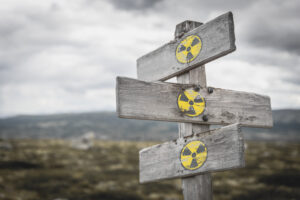
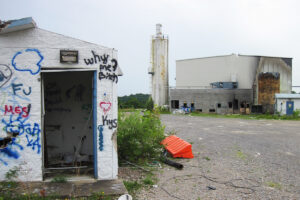
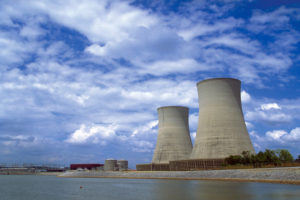
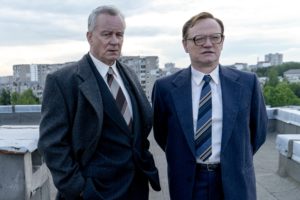
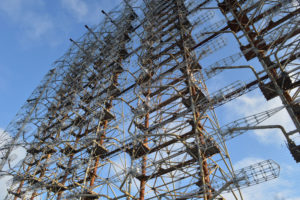

You need to be a supporter to comment.
There are currently no responses to this article.
Be the first to respond.